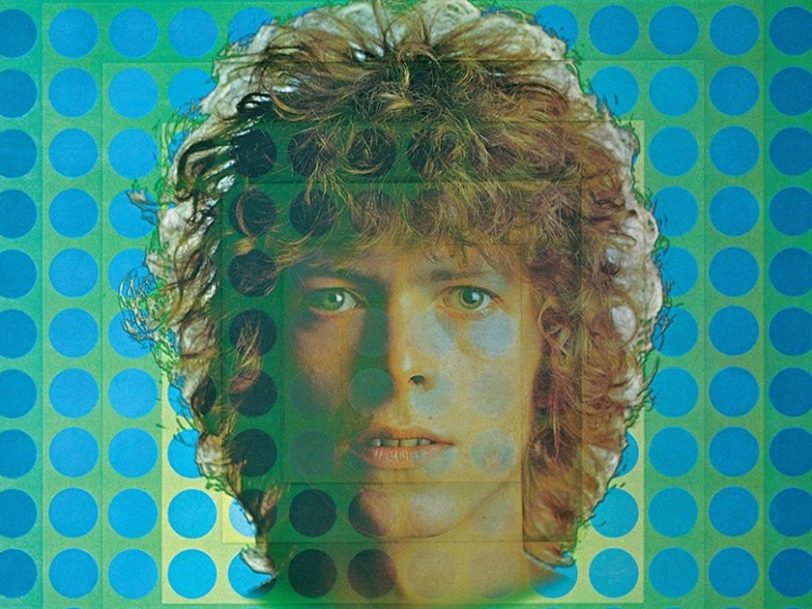Famously, 1969 was the year when man first walked on the moon, but it was also the year in which David Bowie made his own giant leap when his breakthrough hit, Space Oddity, landed him in the Top 5. Yet, the celebrations were muted, for while Bowie’s second, self-titled 1969 album appeared just weeks later, it missed the charts the first time around and – like Bowie himself – had to wait another three years before enjoying its well-deserved season in the sun.
Listen to David Bowie’s 1969 album here.
“He wasn’t sure of what he could do”
Nonetheless, 1969 was the year when Bowie’s countdown to fame and fortune commenced apace – and it’s all the more remarkable when you consider that he had even considered ditching his pop career just months earlier. During the first few weeks of the year, Bowie had auditioned for a West End role in the hippie musical Hair, and he’d supported Tyrannosaurus Rex on tour – but as a mime artist rather than a singer.
“I think David was going through an identity crisis during that period,” musical collaborator and producer Tony Visconti told Record Collector in 2019. “He wasn’t sure of what he could do and if people even liked him… Years later, when I asked, ‘What would you do if you weren’t a rock star?’ ‘Oh, I would be in musical theatre.’… He loved Anthony Newley and Lionel Bart and he was definitely considering that as a career, and the mime thing as well. He was leaving his options open.”
In retrospect, it’s no surprise Bowie decided to review his situation. As 1969 dawned, his name had adorned one album (also self-titled) and six singles for the Decca Records offshoot Deram – and all of them had flopped. He’d formed a folk group, Feathers, with his then girlfriend, Hermione Farthingale, and his friend John “Hutch” Hutchinson, during 1968, but that also fell apart when Hermione left Bowie early in 1969, leaving him devastated when she chose her acting career over him. Bowie and Hutchinson briefly continued as a duo, Bowie & Hutch, but when Hutchinson returned to his native Yorkshire, Bowie was again forced to re-evaluate.
“I wish I’d been a little more hard-ass”
Things then began to turn around after Bowie upped sticks for Beckenham, just outside London, where he moved into a flat and began working on new songs. Encouraged by two influential girlfriends, Mary Finnigan and Angela Barnett (the latter soon to become his first wife, Angie Bowie), Bowie worked up most of the songs he would record for his second album, and then discovered that his manager, Ken Pitt, had scored him a new record deal with Philips in the UK, via Mercury in the US – for one album and three singles.
Having been inspired by Stanley Kubrick’s landmark film 2001: A Space Odyssey the previous year, Bowie already had one ace up his sleeve courtesy of Space Oddity: a song which tapped into the global fever for all things space-related at a time when NASA’s famous Apollo 9 mission was aiming to land on the moon in late July.




